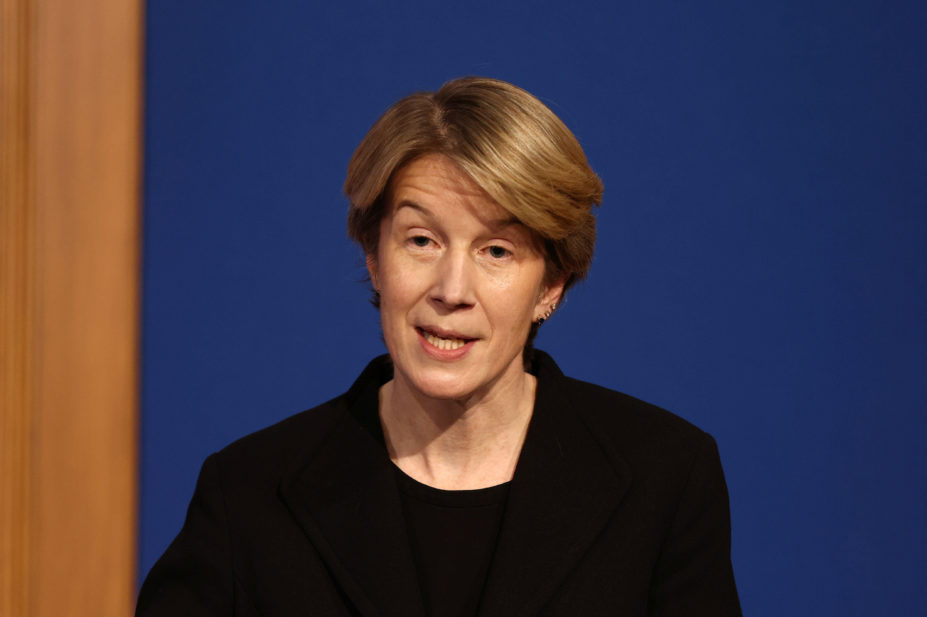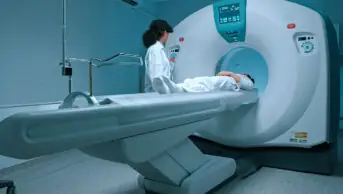
REUTERS / Alamy Stock Photo
Patients in England with advanced, metastatic prostate cancer are to be the first in Europe to be offered darolutamide, a life-extending treatment.
Darolutamide (Nubeqa; Bayer) is already available on the NHS for some patients who have localised prostate cancer but this eligibility is now being expanded to cover patients whose cancer has spread, following an early access agreement with the manufacturer.
The agreement was reached after the Medicines and Healthcare products Regulatory Agency approved the treatment through Project Orbis, an international partnership between medicines regulators in the UK, United States, Australia and other countries, aiming to speed up the approval process for promising cancer treatments.
A press release published by NHS England on 28 November 2022 said the expanded access would benefit around 9,000 men with one of the most advanced forms of prostate cancer.
Darolutamide works by blocking androgen receptors in cancer cells, which in turn blocks the effect of testosterone that allows the cancer cells to survive and multiply. It is usually taken twice daily as a tablet with food, in combination with androgen-deprivation therapy (ADT) to reduce hormone production levels and docetaxel chemotherapy.
The ARASENS trial, which took place at almost 300 sites around the world, including several NHS hospitals — the results of which were published in March 2022 — showed that patients were 32.5% less likely to die if they were taking darolutamide compared to those who had only ADT and docetaxel.
Amanda Pritchard, chief executive of NHS England, commented: “It is fantastic that patients in England will be the first in Europe to receive this treatment for a really advanced and aggressive form of prostate cancer thanks to the NHS fast tracking a new drug deal.
“The NHS is continuing to lead the way in securing the best possible treatments for patients — this is the latest in a long list of cutting-edge drugs that we have secured to help people to live longer with cancer, making a huge, life-changing difference to patients and their families across the country”.
Diana Matthews, an advanced oncology pharmacist at Velindre Cancer Centre in Cardiff, also commented that COVID-19 led to a change of clinical practice that allowed oncology pharmacists to get more experience in using second generation anti-androgen and cytochrome P17 inhibitor drugs.
“I think everyone agrees that these now have a very well-established place in therapy, with similar outcomes to chemotherapy with taxanes but a better side effect profile,” she said.
“The data from ARASENS showed a clear improvement in overall survival with no increase in toxicity for the patient.”
However, Matthews added that it was important to think carefully about the group of patients to whom triple therapy is offered “from a practical point of view”.
“The data seems to suggest that those with high volume disease get more benefit than the patients with low volume disease. Are we stratifying?
“The way current funding is placed, if we use a second-generation anti-androgen agent at this point, when eventually the patient progresses, we won’t be able to offer this type of therapy on the castration-resistant setting, leaving us just with cabazitaxel and/or radiopharmaceuticals,” she added.
“This leaves fewer options of treatment when patients become castrate resistant.
“These are all good things, and having to think about this means that we actually have choices for the patient, and [it] is good to know that our healthcare system is continuously looking into the most recent evidence in order to make them available.”
In its press release, NHS England said it would begin to offer darolutamide to eligible prostate cancer patients “within weeks” and will be available on a “budget-neutral basis” to the NHS while the National Institute for Health and Care Excellence completes its ongoing appraisal.


